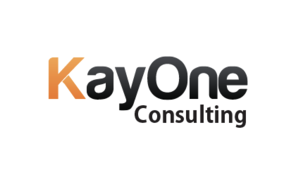When Should a Startup Hire A CFO: A Complete Guide
Introduction
Most startups don’t like the idea of spending a lot of money on hiring accountants and CFOs. But as the business expands and more financial responsibilities pile up – business owners need to hire a CFO. Whether you outsource a virtual CFO or hire a professional one, the success of your business depends on it. Besides, you can count on a CFO to take care of monetary elements and data analysis.
In a faced-paced and highly competitive business landscape, the last thing startups should do is overlook hiring a CFO. Whether it’s optimizing financial performance, performing analytical measurements, making strategic plans, or financial reporting, the role of a CFO has become crucial to ensure long-term business growth.
But it’s not enough to realize and recognize the need to hire a CFO. Startups often don’t have a clear idea about “when” they should get the services of a virtual or professional CFO. Focus on the basics – whether it’s flawlessly managing cash flow or tracking income sources along with payments and accounts receivables, you’ll find the need to hire a CFO in the early stages of a startup.
What Makes Up a Modern Chief Financial Officer (CFO)?
Today, CFOs use a wide range of tools to reach quick analytical conclusions and make sense of the financial information of a company. You may think using advanced accounting software and tax preparation tools should be enough to avoid hiring a CFO. But at some point, startups need a CFO to strategically develop and execute financial plans.
Without a CFO, you would likely find financial data tracking and financial reporting a nightmare.
A CFO’s full extent of responsibilities can include:
- Maintaining expenditure and revenue balance
- Helping startups get funding
- Analyzing complex financial data
- Creating budget reports
- Performing extensive financial planning and analysis
- Recommending suitable acquisitions and mergers
- Offering professional financial advice to startup founders
[monsterinsights_popular_posts_inline]
What is the Right Time for a Startup to Hire a CFO?
When should a startup hire a CFO? That seems to be the question on many startup CEOs’ minds. An expert and experienced chief financial officer can help the company transform finances and steer them in the right direction. For many CEOs, the need to hire a CFO starts with getting a constructive, critical, and objective financial analysis and recommendation.
A chief financial officer is in charge of an organization’s financial health. Part of the process to figure out “why” and “when” you should outsource virtual or professional CFO services is to understand their complete job description. And the more you understand the expansive financial responsibilities of a CFO – the more urgency you’ll feel to hire one in the early stages of your startup.
Even for the most growth-driven startup, cash flow is bound to fluctuate in the coming years. And to tackle this challenge, create forecasts, and track the progression of financial goals, you need a CFO by your side. Think about more than just getting your startup’s finances in order – think about how well you can financially position your startup in the market.
With the right strategic and financial moves, startup founders can address the usual financial problems. In fact, founders are often surprised to find out how the role of a CFO is essential to sustain the consistent financial operations of their startups.
Why Is It Necessary for Startups to Hire a CFO?
Despite the type of company you run, the earlier you hire a CFO the better. Strategic financial planning can make all the difference and put your startup in a competitive financial position. Hiring a CFO in the early stages also makes it easier to spot problems before they spiral out of control.
As a CEO of a new startup, you have to be progressive and proactive about hiring a CFO. You don’t need to hire the most expensive CFO to get the job done. You can also outsource virtual CFO services or get an affordable fractional CFO who can review and analyze your finances and recommend you the best strategies moving forward.
New startup founders often think about learning from YouTube videos or taking short courses to be on top of their finances. But that’s not going to cut it. You need to bring your finance team on the same page and hire a CFO to grow and expand your business.
Founders and owners need to see a CFO as an ally that can help them take their startups to new heights of financial stability. If you’re not trained or familiar with standard and advanced financial tasks, prioritize hiring or outsourcing a CFO for your startup.
Setting Practical Goals
While the startup founder is at the forefront of finalizing organizational goals, it takes a unique perspective and expertise of a CFO to determine whether or not specific financial goals are achievable.
It helps startup founders set in motion a financial operating plan that makes it possible to align these goals with overall financial strategy.
Analyzing and Rendering Financial Reports
CFOs can read technical financial reports to secure a startup’s fiscal wellness. CFOs analyze complex financial reports and direct CEOs to focus on areas that need the most improvement.
Even if you have a finance background – it can be overwhelming to contextualize overwhelming data and spot opportunities. But when you hire a CFO, you can count on detailed financial reporting, analysis, and recommendations.
Managing Startup Cash Flow
CFOs help startups spot a reliable stream of income sources that can ensure the long-term growth of their business. CFOs also recommend suggestions based on multiple income sources and help startup founders devise a strategy for capital distribution.
Additionally, CFOs help startups minimize and address financial emergencies, ensure there’s sufficient liquidity, and speed up the process to help the company achieve its annual financial goals.
[monsterinsights_popular_posts_inline]
How to Determine “When” You Need a CFO?
There are many ways for startups to find out when to hire a CFO. If you’re struggling with standard finance concepts like cash flow management, financial and strategic goal setting, and financial analytics, consider hiring a CFO before your startup takes a financial hit.
But when your annual revenue threshold and budget increase, you should consider hiring a part-time chief financial officer (CFO). Knowing “when” a startup should avail the services of a CFO comes down to the company’s financials, market, growth expectations, and competition. It also depends on the internal team’s financial experience and skills.
Here are a few essential questions you should ask yourself to determine when to hire a CFO:
- Do you know how to work future planning models based on historical data?
- Can an accountant help you with workflow management after an increase in operations?
- Can you handle tax compliance and maintain a consistent revenue stream every year?
- Can you secure A funding without the help of a CFO?
- Do you understand the complexities of profit and loss statements, financial statements, and cash flow management to improve your bottom line?
While startup founders can access their financial data in real time, they need to hire a CFO in the long-term financial planning stage to actualize the data and drive growth. It is the main reason that separates startups that operate to survive from startups that sustain consistent growth.
The startup founder and hired CFO should come together to ensure the company’s finances are healthy. It would also allow the startup to tap into new financial opportunities.
As a founder, you should also ask yourself questions like:
Are managing day-to-day business finances becoming overwhelming and unmanageable?
Initially, it may make sense to manage the startup’s finances on your own – but you’ll need to think about future growth sooner or later. And when finances become uninitiated and unmanageable, it is time to hire a CFO so that you get the competitive edge to stand out.
Can you benefit from an experienced and objective business perspective?
Remember that CFOs possess an extensive understanding of various business practices. In fact, one look at your startup financials and CFOs can see whether or not it is on the right path. Perspective matters, and having an objective perspective of a CFO can keep you grounded and avoid making common mistakes.
Do you require a full-time or part-time CFO?
Hiring a full-time corporate CFO is usually out of the budget for startups. The good news is that startup founders can outsource a CFO or get virtual CFO services at a fractional cost than a full-time CFO. Hiring a part-time CFO allows startups to improve their financials at significantly lower costs.
Do you require assistance in allocating different investment funds?
Startup founders often don’t have a clear roadmap. With the help of a CFO, you can establish a robust financial plan. CFOs provide insightful information so that startups can best utilize their finances.
[monsterinsights_popular_posts_inline]
Determine Finance Elements to Determine the Perfect Time to Hire a CFO
On the surface, deciding on a suitable CFO may sound tricky. But the key is to determine your needs and see whether or not the CFO would make a good fit for your startup. Hiring a CFO in the early lifecycle of your startup means you will be able to leverage financial opportunities early on and catapult your startup forward.
Hiring an in-house CFO is only practical if a company makes annual revenue of $30-$50 million. On the flip side, most startups and small businesses gravitate towards fractional CFOs and virtual CFO services. Contrary to what you may have heard, outsourced virtual CFOs can offer the same financial expertise as full-time corporate CFOs.
If your yearly revenue is from $1 million to $10 million, you can get an in-house controller before outsourcing a part-time CFO. At this stage of your startup lifespan – the controller can closely review your accounting activities. The controller can also manage hired accountants and bookkeepers.
Whether your startup is in the stage of transacting, basic record keeping, financial planning, financial reporting, or strategic planning, you’ll feel the need to hire a CFO. In most cases, when it comes to performing trusted financial reporting, startups realize the relevance of hiring a CFO.
Startups in the financial planning stage mostly need a CFO. In most cases, a fractional CFO will do and help a startup perform accurate and quick forecasts. Similarly, when the time comes for strategic partnering, startups cannot do without a CFO. A CFO can help the startup achieve its strategic vision, conduct scenario analysis, and help make pricing decisions.
Don’t Hire “Too” Early
While it is important to hire a CFO in the early lifecycle of your startup, make sure not to get a CFO when you’re just starting out. Your goal should be to get the most value from a hired CFO “after” you start operations and accumulate financial data.
Startup founders have to be objective about their financial position and how they see the future of their company five or ten years down the line. As a startup founder, it will help you better understand what a CFO can contribute and how continuous collaboration with a fractional CFO can help you get through tough financial times.
Final Thoughts
All in all, hiring or outsourcing a part-time CFO should be one of the priorities for startup founders in the early lifecycle. If startups want to achieve their ambitious financial goals and drive unprecedented growth, they’ll need a CFO to effectively plan, manage, and review the business growth needs. It has become common for companies to move away from corporate CFOs and outsource fractional or virtual CFO services.
The business landscape is changing, and startups have to think beyond managing the books. Whether you hire an in-house or virtual CFO, an all-around CFO can help you step up your company operations. Opt for a full suite of modern financial services and establish trust with the hired CFO to get off on the right foot and achieve your startup’s financial goals faster.




